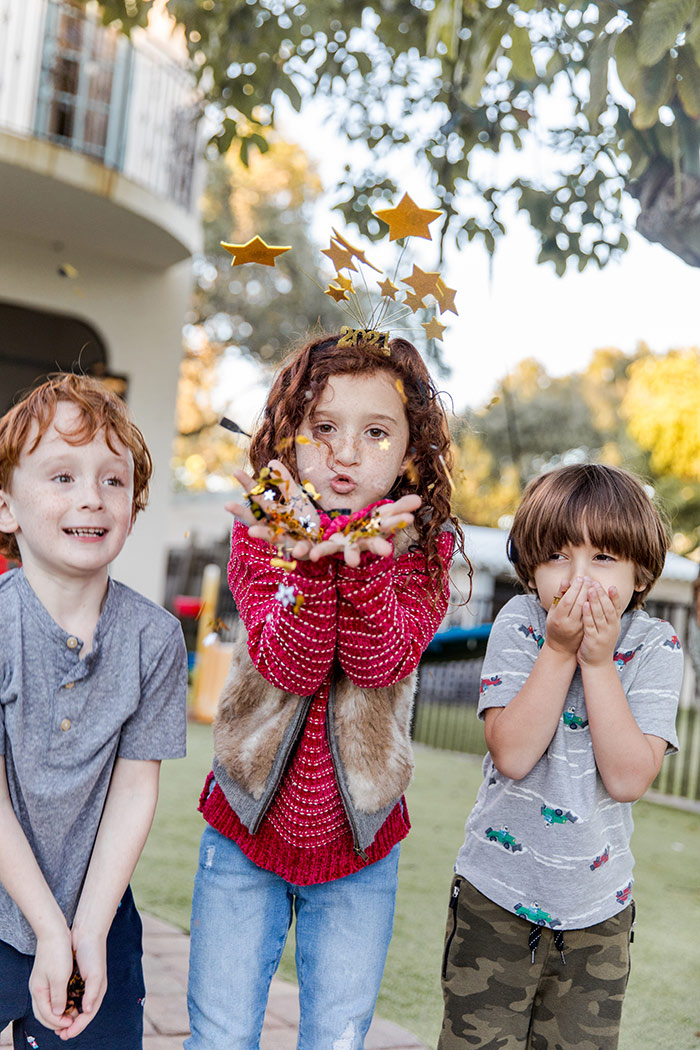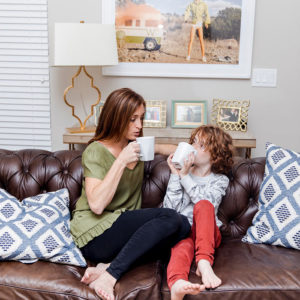
Goodbye 2020 – Hello Reflection, Understanding, and Positive Growth for 2021
2021 is finally here. And with it, this year brings some possible scars, apprehension for the future, and most importantly hope for a healthier, safer, and happier year. We’re venturing into this New Year with COVID-19 vaccination sites opening, children returning to physical school, and some glimmer of our old normal lives. Now more than ever, it’s important for all of us to take a moment to reflect on the events of the last year. We need to understand what we all went through and try to grow positively from the life lessons learned this past year.
So today, we have partnered with Responsibility.org to offer some advice on how to truly pause, reflect, listen, and grow for a brighter New Year.
Life Lessons Learned in 2020
A few weeks ago, we had the pleasure of speaking with middle school counselor and author Phyllis Fagell. Her talk was inspiring and impactful. She discussed the importance of bringing authenticity into 2021 and offered advice on modeling that authenticity for our children. She also discussed how to make peace with unmet expectations and disappointments, especially with the pandemic, and how to guide our children through such challenges.
Passing on the life lessons learned during the pandemic of 2020 in a positive and reflective manner is so important in helping our children work through and overcome any challenges in their lives.
2020 was definitely a year of change and many disappointments. We all experienced changes in schedules, the way we socialize, and how we work or go to school. Canceled events and plans disappointed all of us. We had to do our best to accept and make peace with these unmet expectations.
So how do we use these experiences for growth into 2021?
The following 5 life lessons learned will hopefully help you reflect on your feelings and experiences of 2020 and turn them into positive personal growth points for yourself and your children for many years to come.
1. Reject Toxic Positivity
The term ‘toxic positivity‘ refers to focusing on positive emotions and rejecting anything that may trigger negative emotions.
In this world of social media which tends to highlight and focus on everyone’s best and most ideal moments, toxic positivity has become a very relevant, impactful, and at times, extremely problematic issue. In fact, studies continually show that the impacts of social media on people, especially younger ones, are leading to higher incidences of depression, anxiety, and suicide.
It makes so much sense.
Social media highlights everyone’s best and happiest life. Looking at only the positives from your peers can lead to comparisons, unattainable expectations, and skewed perspectives of what is “normal.”
With this past year and COVID-19, most of our interactions and socializations with others have been through social media outlets and screen time (FaceTime, Zoom, etc.). Now more than ever, we need to teach our children how to navigate these skewed versions of true life.
2. Be Authentic
The best most impactful way to teach our children the importance of being true to yourself is to model that behavior ourselves.
During our talk with Dr. Fagell, we openly discussed the struggles we had during this past year.
One woman discussed how she broke down and cried in front of her kids on one occasion. She felt shame and disappointment in allowing her children to see her in that state. However, her experience was ultimately eye opening and educational. She showed her children that it is okay to be sad or vulnerable at times. Everyone has bad days.
Dr. Fagell suggested that we use these moments to teach our children lessons of authenticity. It is normal to experience moments of sadness and stress. The important lesson here is to feel those emotions, process them, and recover.
Our world is not always happy and peaceful.
As Dr. Fagell so eloquently stated, “Our job as parents is not to teach our children to avoid obstacles, but to teach them to overcome them.”
Use your own vulnerable moments to model acceptance and positive coping mechanisms for your children.
3. Know the Truth of Social Media
This discussion was perhaps the most impactful amongst influencers and bloggers. We discussed the familiar pressures of perfection and happiness on social media.
As adults, we understand the realities of social media. We can navigate through the feelings of not living up to the ideal image of happiness or the unrealistic and often false expectations and standards that are portrayed through these online outlets.
Children, on the other hand, have a much harder time understanding whether the images they see online are authentic or realistic. It’s the perfect time to have that tough conversation with your children about the dangers and false pressures of social media.
Be honest and forthcoming with your children about what most people post on social media.
Dr. Fagell suggested using the analogy of an iceberg to describe social media when we speak to our children. What we see online is often just the tip of the iceberg. There is so much more underneath the water. There are sharks and storms and other obstacles that are not always displayed for the world to see.
Pay attention to the people and pages your children are following online. Do they follow a diverse group of people with different interests, images, and messages?
With most of our children’s social interactions in 2020 dictated by social media, screens, and computers, now is the time to have these honest conversations about the messiness of the real world.
4. Make Peace with Unmet Expectations
Starting a conversation and modeling appropriate responses to disappointment help our children learn how to handle unexpected changes.
Many of life’s circumstances are out of our control.
We fill our lives with a false sense of control with our calendars, routines, organized plans, rituals, and expectations. In reality, thing’s can change at a moment’s notice, drastically altering our lives.
We have no control over these hiccups. What we do have control over is our response.
So how do you respond to a disappointment or rethink this outcome? How do you choose to adapt in a positive way?
As Dr. Fagell put it, “Our job is not to shield our kids from disappointment. Our job is to help them recover when they experience it.”
I try and instill in my children that you do not know the outcome until you take the journey. A disappointing situation may result in a better outcome once the journey is complete.
But the same is true for the reverse.
Something that appears to be wonderful at the time may easily result in something that was not expected.
Dr. Fagell said, “We have no way of knowing if getting what we want will make us happy.” Two people can start at the same place and end up in different places or start at different places and end up at the same place.
The journey is not in our control, but our attitude is. Adapting to change with positivity, curiosity, and gratefulness, regardless of the expectation, is where real growth occurs.
When we approach these obstacles with a positive mindset and teach our children to do the same, we have the tools to overcome adversity, be resilient, and handle life’s unexpected changes.
5. #TalkEarly About Tough Topics
Now is a great time to start (or continue) hard conversations about the realities of the world with your children, including about how to drink responsibly! Your children may be seeing more of YOU now than every before. Your reactions to situations, your interactions with other adults, and your own relationship with alcohol may be on display. So be open in sharing your experiences with your children in these instances. It’s the perfect way to start the discussion early.
Responsibility.org is an excellent resource for conversation starters and how to approach tough topics at all ages and stages. Talking with your kids about alcohol early and often really is the best way to help prevent underage and irresponsible drinking as your children grow and become more easily influenced by outside sources.
Remember, parents are the leading influence on their kids’ decisions to drink – or not to drink – alcohol.
Final Thoughts on Life Lessons Learned in 2020
Reflecting on 2020, I hope we can all pause, process, and grow as we venture into the future. As life begins to look more “normal,” it’s easy to fall back into autopilot mode and forget the life lessons learned in this past year.
For me, I always strive to serve as a role model and teach my children the tools they need to navigate an unpredictable journey filled with both happiness and disappointments.
This year has taught us so much. I hope we can take these lessons learned into 2021 and beyond and teach our children to be resilient, positive, curious, and grateful.
Parenting is one of the most challenging yet incredibly amazing roles we will take on in our lifetimes. There is no better, more inspiring experience. And we are honored to be an ambassador with Responsibility.org and #TalkEarly to help parents along the way with their journey.




